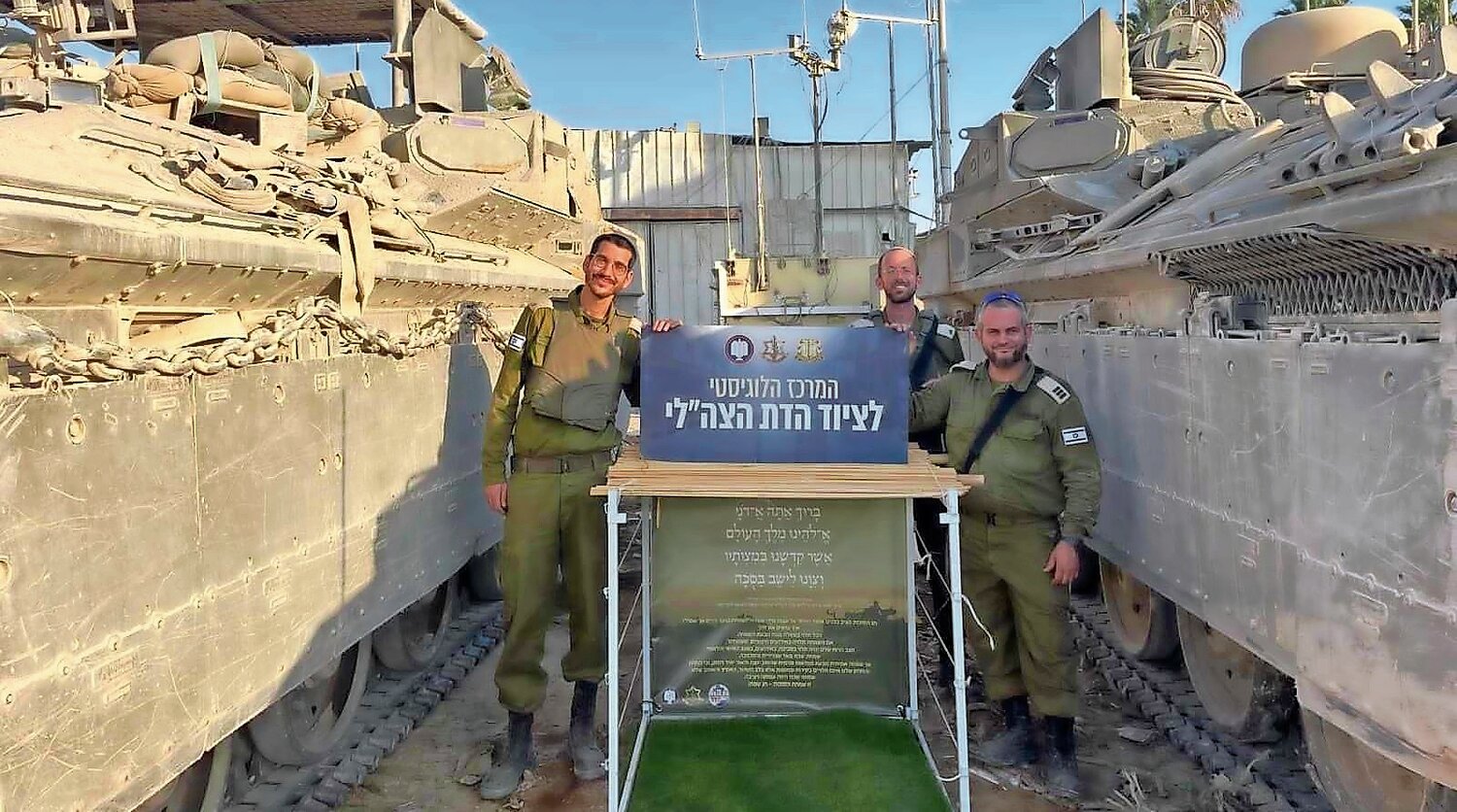Under shadow of war, a sukkah not to be seen
As tens of thousands of reservists are being called up to the northern front in the battle against Hezbollah in Lebanon, the IDF Rabbinate sought to ensure that every soldier hears the sounding of the shofar — whether in Gaza or on base, in combat or on guard duty.
To meet this challenge, the Military Rabbinate supplied of 5,800 shofars. The Rabbinate also supplied 80,000 machzors for Rosh Hashana, Yom Kippur and Sukkot, including 25,000 pocket-sized editions adapted for combat soldiers. This is of particular importance during the holidays because while many soldiers know significant portions of the daily or Shabbat prayers by heart, the holiday prayers include unique additions unfamiliar even to one who prays regularly.
Meanwhile, the Rabbinate has been getting ready Sukkot. How does someone eat in a sukkah while fighting in Gaza or engaged in combat conditions in the north?
The Rabbinate commissioned a special model of an “operational sukkah” — the “Frontline Soldier’s Sukkah.” It meets all the requirements of Jewish law for a traditional sukkah, but it is no traditional sukkah. It can be quickly assembled, disassembled and carried with one’s gear from place to place to suit the challenging conditions faced by soldiers in the field.
Additionally, the Military Rabbinate has issued more than 12,000 sets of the Four Species that have been thoroughly checked by the rabbinate’s branch of Jewish law to ensure that every soldier can fulfill the holiday commandment of waving an etrog, lulav, hadas, and aravah.
The rabbinate notes that the distribution of this equipment has been ongoing for weeks due to the logistical complexity of reaching tens of thousands of regular and reserve soldiers spread throughout the country in various states of readiness.
Times like these highlight how privileged we are to have a Jewish army and how vital a role the IDF Rabbinate plays in retaining its Jewish character.






